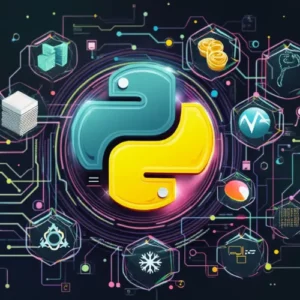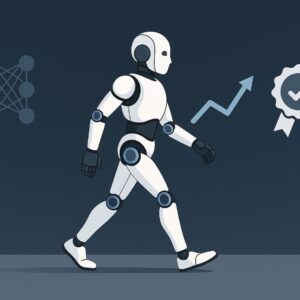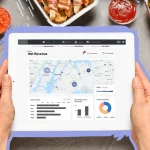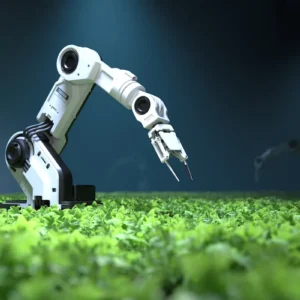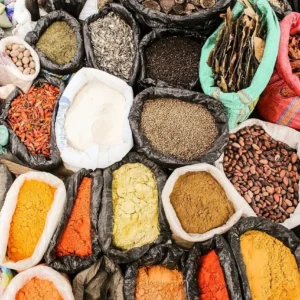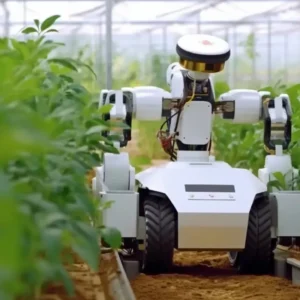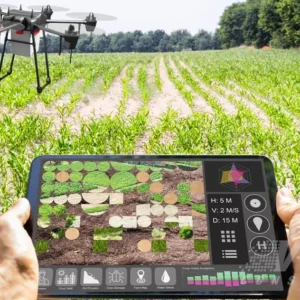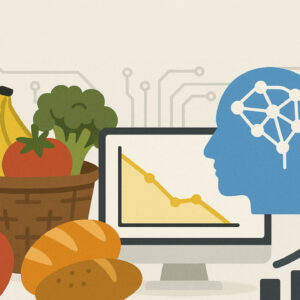The implementation of machine learning technologies has ushered in a new era of innovation and efficiency within the food industry. By harnessing the power of AI-driven models, food production processes are being revolutionized, resulting in enhanced productivity, reduced waste, and improved food safety measures. This section transforms dramatically by the aid of machine learning, shedding light on how it is shaping the future of food production.
Machine learning, a subset of artificial intelligence, is a powerful tool that enables computers to learn and make decisions without explicit programming. In the context of food production, this technology is being utilized to optimize various stages of the process, from farming and harvesting to processing and distribution. By analyzing vast amounts of data, machine learning algorithms can identify patterns, make predictions, and automate tasks, leading to significant improvements in efficiency and quality control.
For instance, machine learning algorithms can analyze weather patterns, soil conditions, and crop growth data to optimize farming practices. This technology can also be employed to monitor food safety by detecting contaminants and ensuring adherence to regulatory standards. Additionally, machine learning-powered systems can streamline supply chain management, reducing waste and enhancing overall operational efficiency.
Revolutionizing Food Production with AI: A Smart and Sustainable Approach
The integration of machine learning in food production is a game-changer, offering an innovative and efficient approach to enhance food quality control measures. By employing advanced algorithms and artificial intelligence, the industry can now ensure a consistent and safe food supply. One of the key applications is the use of image recognition technology, which enables the detection of defects and imperfections in food products with remarkable accuracy. This technology not only ensures a higher level of quality but also contributes to reducing food waste by accurately predicting shelf life and expiration dates.
Machine learning algorithms have the power to revolutionize food quality control, providing a robust and reliable system for monitoring and maintaining the highest standards in food production. With its ability to analyze vast amounts of data and make accurate predictions, this technology is a valuable asset in ensuring the safety and well-being of consumers.
Improving Supply Chain Management: AI’s Impact on Efficiency and Sustainability in Food
The implementation of artificial intelligence in the food industry has revolutionized supply chain management, significantly enhancing efficiency and reducing waste. AI’s predictive capabilities, powered by machine learning algorithms, play a pivotal role in demand forecasting, enabling businesses to make informed decisions and optimize their operations. By accurately predicting consumer behavior and market trends, AI minimizes the risk of overproduction and ensures a more balanced supply-demand ratio.
Furthermore, AI-powered inventory management systems revolutionize operations by providing real-time insights into stock levels and storage conditions. This technology helps prevent food waste by identifying potential issues such as spoilage or overstocking, allowing for prompt action and better resource allocation. With AI, food producers can make data-driven decisions, leading to more sustainable and efficient practices. Machine learning in food production is a powerful tool, ensuring a brighter and more sustainable future for the industry.
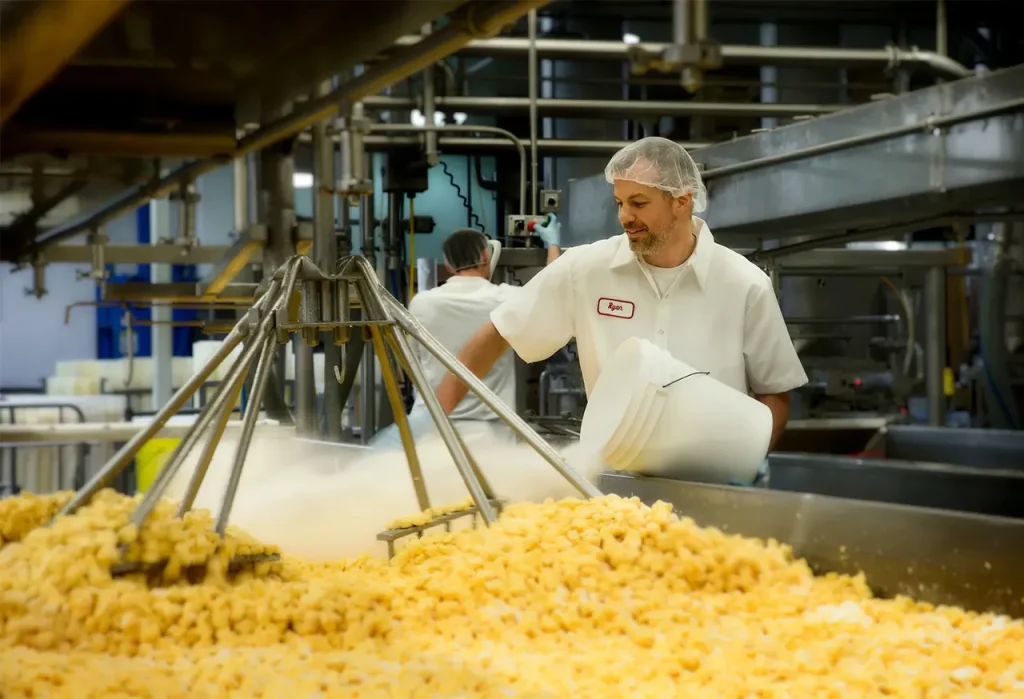
Revolutionizing Agriculture: The Power of AI and Machine Learning
The integration of machine learning into agriculture is a game-changer, offering incredible advancements in crop production and sustainability. With precision agriculture, farmers can now maximize their yields and efficiently allocate resources, ensuring a more prosperous and environmentally conscious future.
Machine Learning applications provide an innovative approach to crop monitoring, utilizing satellite technology and IoT sensors to meticulously track the health and growth of plants. This real-time data enables farmers to make informed decisions, optimizing their practices for maximum yield and minimizing environmental impact.
Furthermore, predictive pest control, powered by machine learning, is a powerful tool for farmers. By analyzing vast amounts of data, this technology can detect and prevent pest infestations, reducing the need for excessive chemical interventions and promoting a more sustainable approach to agriculture.
Machine Learning in food production is revolutionizing the industry, offering a brighter and more sustainable future for farmers and the environment alike.
Improving Food Production: Machine Learning Impact on Efficiency
The world of food production is undergoing a remarkable transformation with the integration of artificial intelligence and machine learning. These innovative technologies are revolutionizing the way we process and package our food, leading to unprecedented efficiency and precision.
Imagine a world where AI-powered robots meticulously sort and grade fruits, vegetables, and grains with unparalleled accuracy. Machine Learning algorithms analyze each item, ensuring only the finest quality products reach our tables. This level of precision not only enhances the overall quality of our food but also reduces waste, benefiting both consumers and the environment.
Moreover, smart packaging innovations, driven by AI, are extending the shelf life of our favorite products. These intelligent solutions monitor and maintain optimal conditions, ensuring food safety and minimizing the risk of spoilage. With such advancements, we can enjoy our favorite treats for longer, reducing food waste and promoting a more sustainable future.
The future of food production is undeniably bright, thanks to the power of AI and machine learning.
Unlocking Personalized Nutrition: Machine Learning Impact on Dietary Choices
The integration of Machine Learning in the food industry has revolutionized the way we approach nutrition and meal planning. With the advent of machine learning in food production, we witness a remarkable shift towards personalized dietary solutions. AI-driven systems analyze individual health data and preferences, crafting customized meal plans that cater to specific needs. This technology empowers consumers to make informed choices, ensuring a balanced and nutritious diet.
Beyond health considerations, AI-powered recommendation systems in food delivery apps and grocery shopping platforms predict and cater to individual food preferences. These systems leverage machine learning algorithms to offer tailored suggestions, enhancing the overall culinary experience. The synergy of AI and food production exemplifies the potential for innovation and customization in the industry.
Machine Learning’s role in optimizing dietary choices is a testament to the power of technology in enhancing our daily lives. It is an exciting development that promises a healthier and more enjoyable culinary journey for all.
Enhancing Food Safety: Machine Learning Impact on Food Integrity
In the realm of food production, the integration of machine learning has proven to be a game-changer. This advanced technology acts as a vigilant guardian, safeguarding the authenticity and integrity of our food supply. By employing sophisticated artificial intelligence models, machine learning can detect any signs of adulteration or fraud, ensuring that the food we consume is genuine and of the highest quality.
One of the most significant contributions of machine learning in food production is its ability to establish a comprehensive traceability system. Through the seamless integration of blockchain technology and AI, we can now track the journey of our food from the farm to our tables. This transparency not only enhances consumer trust but also enables efficient monitoring and management of the entire food supply chain.
With machine learning, we can bid farewell to food fraud and embrace a new era of transparency and trust in the food industry.
Enhancing Food Sustainability: AI’s Green Revolution
In the quest for sustainable food production, artificial intelligence emerges as a powerful tool, offering innovative solutions to enhance resource efficiency and reduce environmental impact. Machine Learning, a subset of AI, plays a pivotal role in optimizing resource management, thereby minimizing waste and maximizing the potential of our food production systems.
One of the key applications of AI in this domain is its ability to predict and minimize food waste. By analyzing vast datasets and patterns, AI can accurately forecast demand, ensuring that surplus food production is minimized. This not only reduces waste but also optimizes the supply chain, benefiting both producers and consumers alike.
Furthermore, machine learning is at the forefront of developing alternative protein sources. Through intricate data analysis and modeling, AI aids in the creation of lab-grown meat and plant-based alternatives, offering sustainable and eco-friendly options to traditional meat production. This innovative approach not only reduces the environmental footprint of food production but also addresses ethical concerns, presenting a more sustainable future for our food systems.
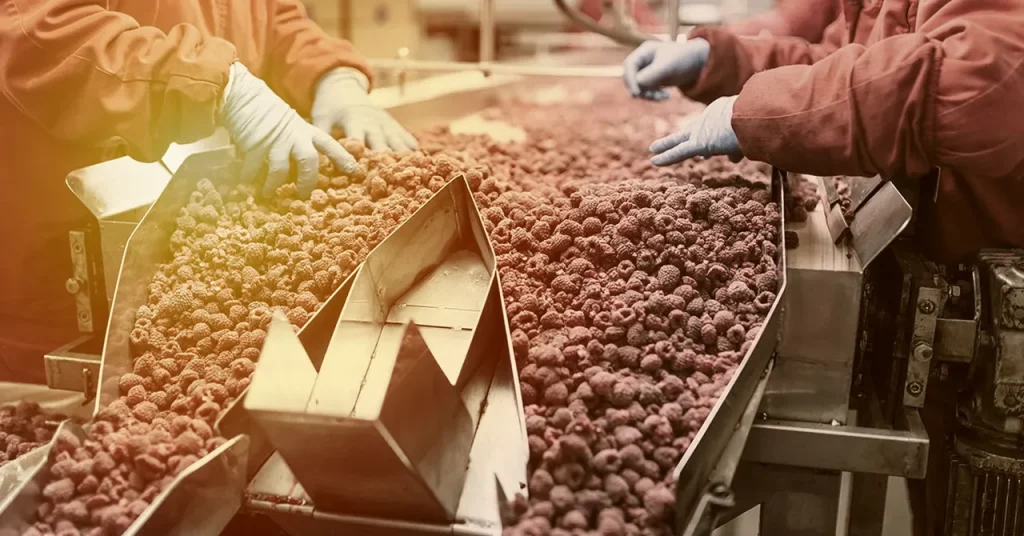
Thus, with its ability to optimize resource usage and drive innovation, AI is transforming the way we approach food production, paving the way for a greener and more sustainable future.
Unveiling the Future of Food: Machine Learning’s Potential and Pitfalls in Production
The integration of machine learning into food production presents an exciting frontier, yet it is not without its hurdles. One of the primary challenges lies in the meticulous collection and maintenance of extensive, accurate datasets. These datasets are the lifeblood of AI models, and their quality directly impacts the reliability and effectiveness of the entire system.
Furthermore, ethical considerations and regulatory compliance are paramount. Ensuring transparency in AI-driven food production processes is essential to maintaining public trust and adherence to legal standards.
While machine learning offers immense potential to revolutionize food production systems, it is crucial to navigate these challenges with precision and foresight. By addressing data quality and ethical concerns, we can harness the full power of AI to create a sustainable and efficient food system.


